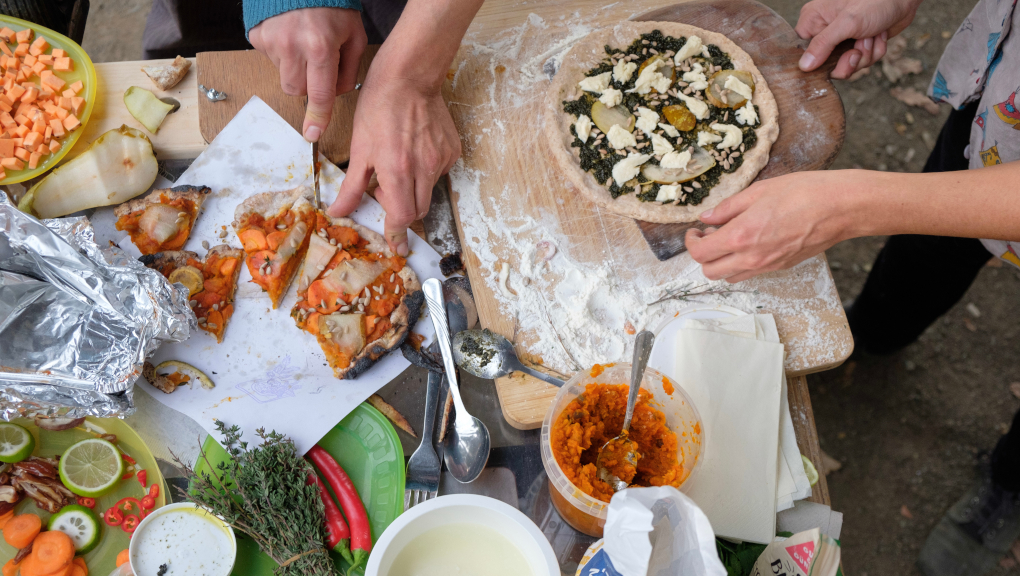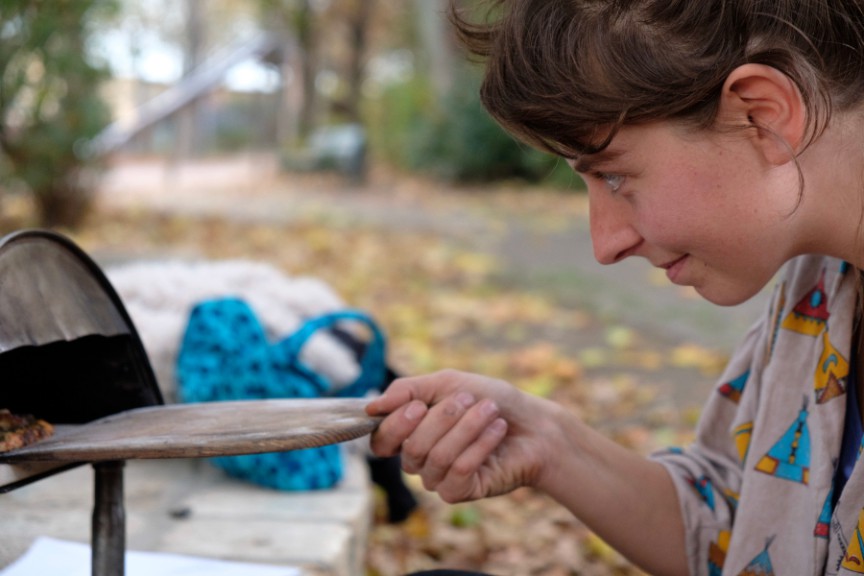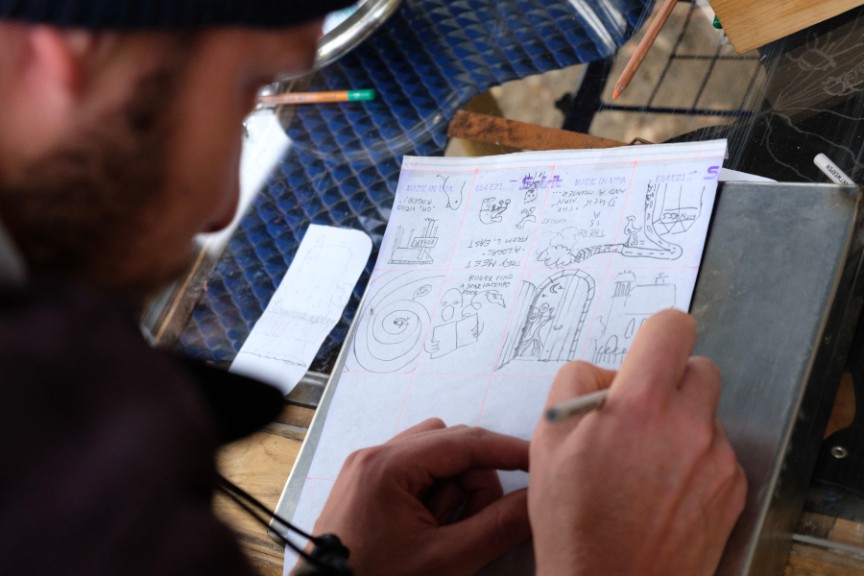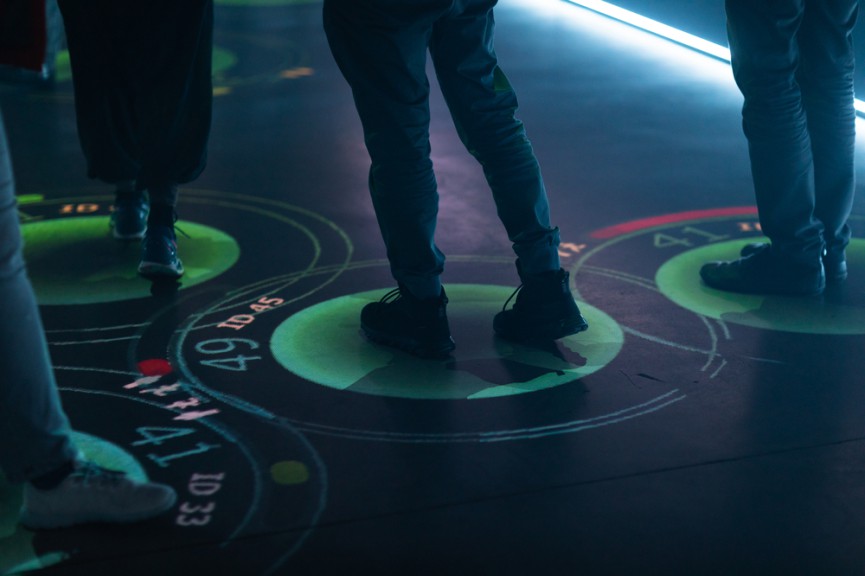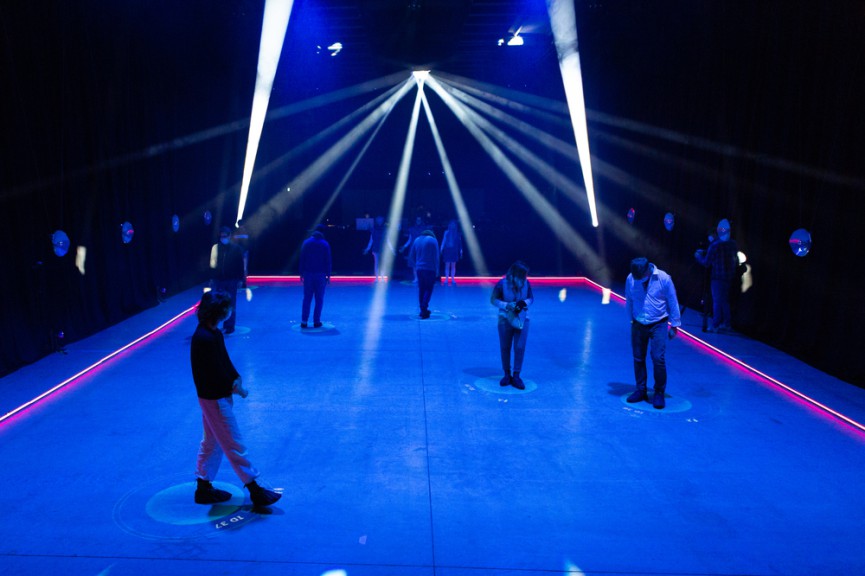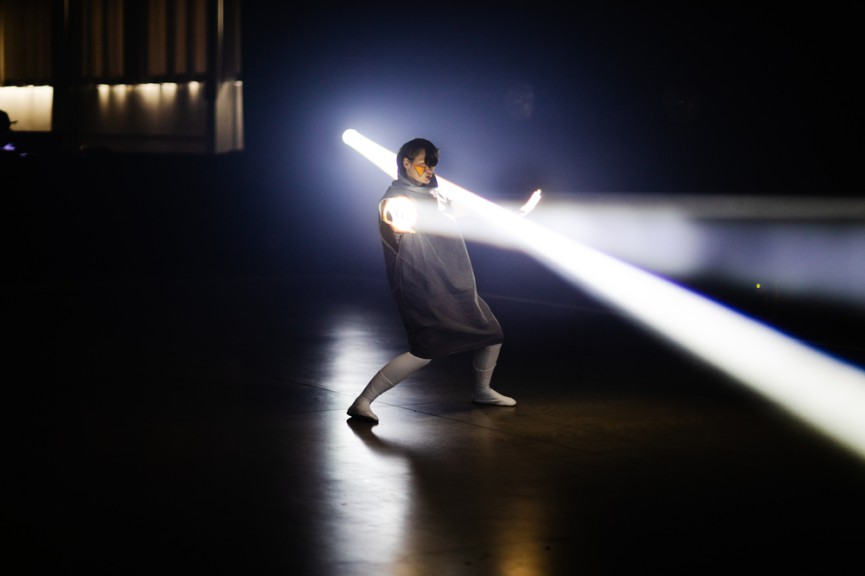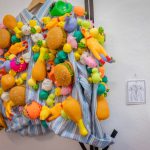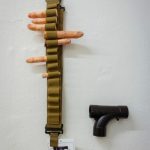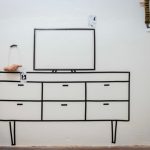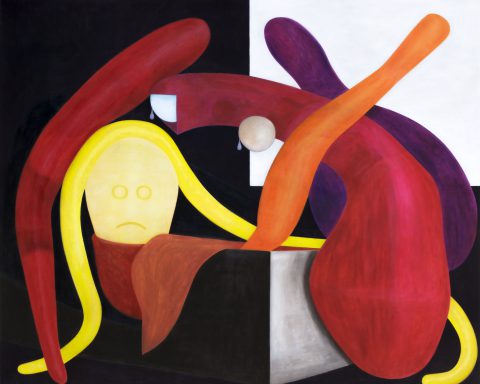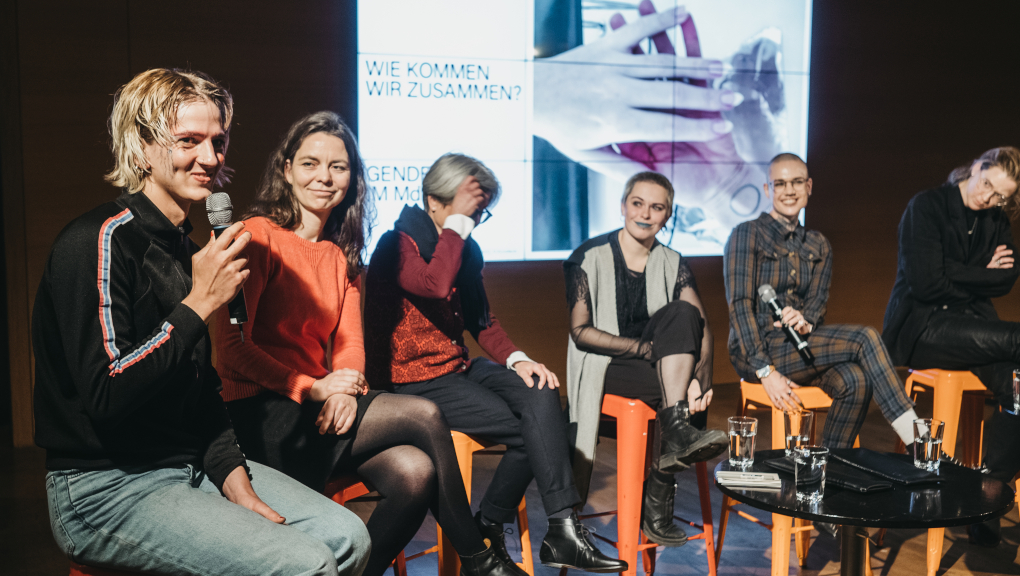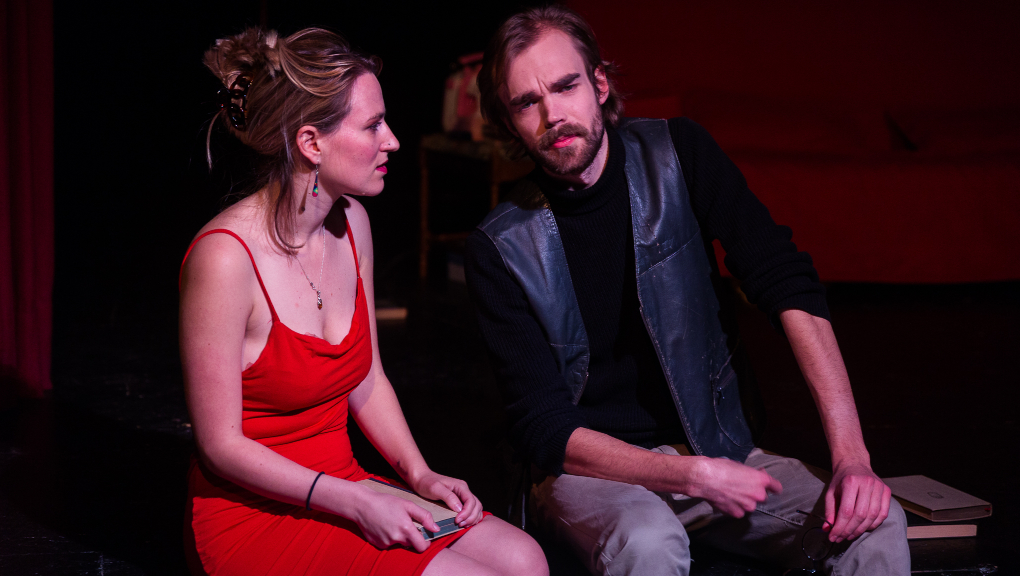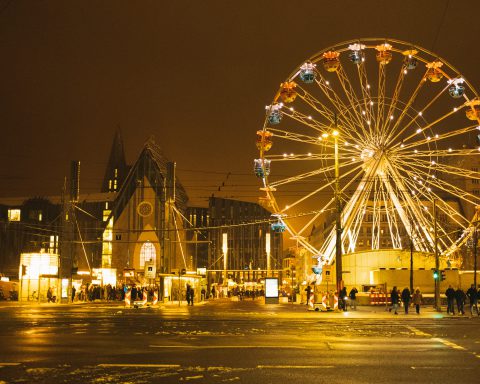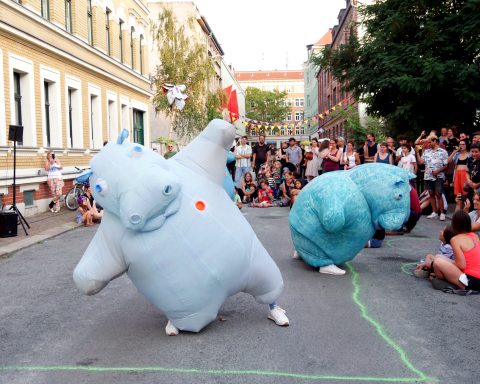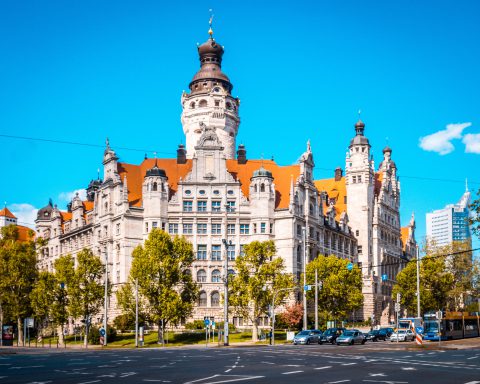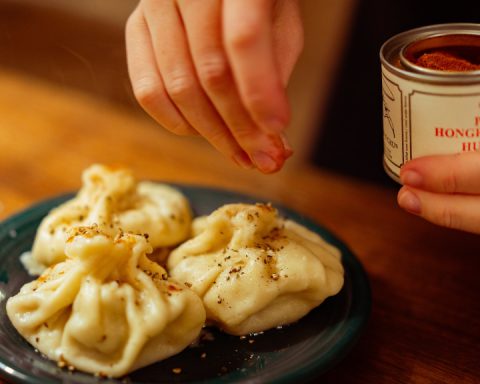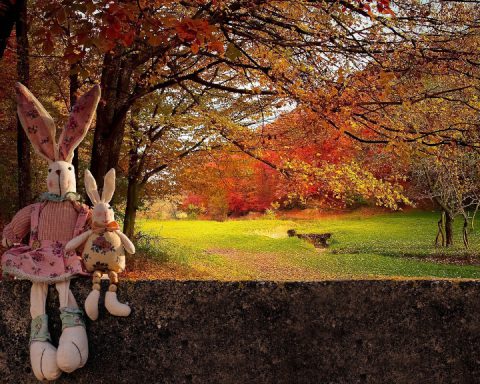Pöge-Haus’s third contemporary art biennale, Art Go East, spread its Persian tent over Leipzig’s East from 24 to 30 October 2022. As the subheading suggests, enchantment was the intended antidote to the growing instability in our world. It featured exhibitions and interactive formats in and around the Pöge-Haus and the Galerie Hotel Leipziger Hof. These showcased works by seven artists from Spain, Italy, Poland, Belgium and Germany. Multiple public art spaces in Leipzig East hosted additional performances and shows. The biennale covered a large variety of locations and diversity of works. It was impossible for one little reporter on a bicycle to cover everything! Nonetheless, I did the best I could in one evening to get an overview of what Art Go East had to offer.
Stone Soup Gathering
First stop was the Stone Soup Gathering workshop by Ines Ballesteros (Spain) and Michela Dal Brollo (Italy). These Antwerp art school students were invited by the Sachsen Kulturstiftung to contribute. And what better way than by bringing their “Living Equipment”: developed to explore interactions with and in public spaces. These include their backpack oven (Cum-Panis), their transportable printer (Gelitino-grafo) and the transportable desk and stand (Ruotala). To the uneducated eye the objects might have looked like your everyday picnic.
However, with the help of Latin titles they were redefined into an art workshop. Participants were encouraged to bring an ingredient to share as well as ideas to contribute to the communal story. Then the emerging recipes were tasted and printed. I asked Michela more about the concept and she told me that it is an exchange. “We cook them pizza, print the story and they might give us a floor to sleep on, for example.”
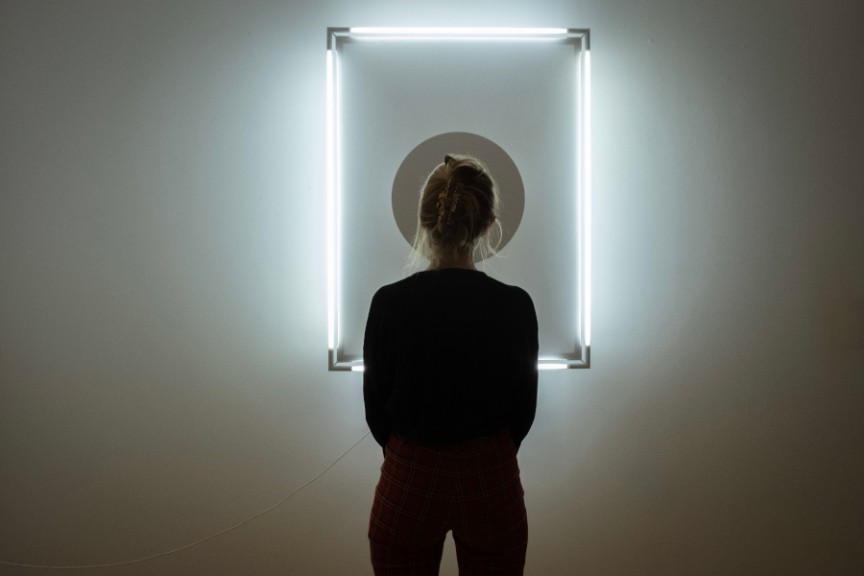
Emergence and Ikarus
Next stop was the Gallerie Hotel, where Emergence and Ikarus were exhibited. These two 2019 works were created by local artist Lukas Schilling. Schilling’s works react to movements that take place in the exhibition space, inviting interaction. Only in the stillness of a motionless room does Emergence slowly take on a clearly defined form. If the process is disturbed by even a tiny movement, the image retreats and blurs back into a diffuse shadow. It is comparable to the increasing heat of the sun, which caused the flight of Ikarus to end in disaster. The reactive vibration of the membrane in Ikarus causes one’s own reflection to dissolve into unrecognizability as the viewer approaches. Drawing near to oneself proves to be an ever-elusive mirage.
SystemFailed
After becoming sufficiently divorced from myself, I took what seemed like a long bike ride over the tracks to Zimmt. Here Leipzig’s own ArtesMobiles were pushing the limits of IT’s ability to control and permeate. They did this by asking the question, “Does digitization lead to more freedom, or does it endanger our humanity?”, with their interactive performance piece called “SystemFailed”. One of the three half robotic, half human-looking hostesses called out my seat number as the first to come and join them in the arena. I had to quickly overcome my Shilling induced non-existence and at least pretend to take part.

One by one, the entire audience formed a temporary micro-society, observed and examined by the three “researchers”.
Each person was encircled by their assigned ID number and allocated points which followed them everywhere they went. Each round, we were given instructions on how to maintain, grow or lose our points. For example, by drawing near to others, we gain points but as others grow near, they syphon off our points. After each round our behaviors were digitally analyzed and “good” and “bad” subjects were singled out for public scrutiny. Disobedient subjects were expelled; or were they? As a result, a hostile environment developed between the strangers. Unless they could work together to overthrow the system, ultimately dictating their own parameters.
For someone who hates interactive pieces, I have to say that SystemFailed blew my mind. It opened up a Pandora’s box of questions on how societies function, digitization, and what it means to be human. It was frightening to hear some people in my discussion group at the end. Instead of questioning the system itself, they were rather brainstorming how it could be refined. Discussing which other things it might be able to micromanage for us. Are we perhaps all growing too accustomed to living under such conditions?
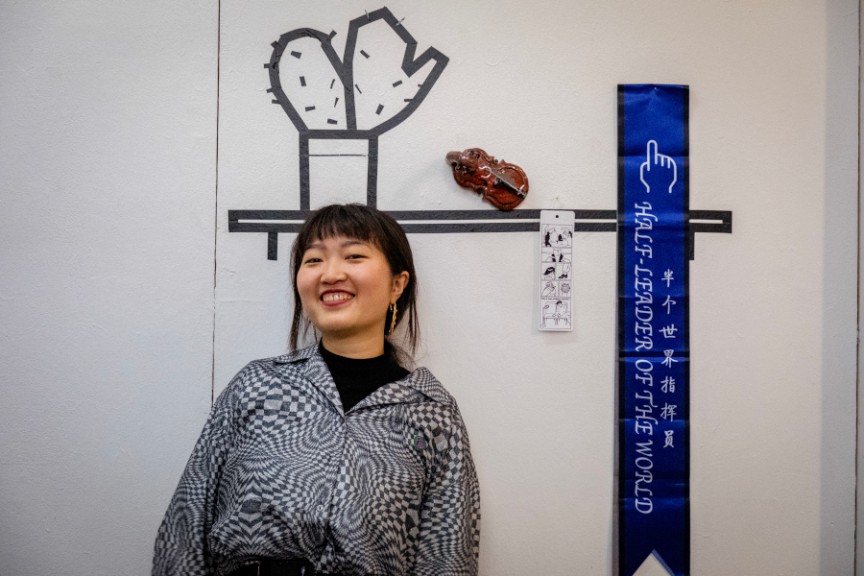
Invisible Relationships
Last stop was Invisible Relationships, by Leipzig art student Mao Yuqiu (China) at Space Helmut. Rubber chickens and hamburgers sewn to a shirt hang next to non-existent wall shelves taped to the wall. Metal bars embellished with stucco and ammunition belts loaded with severed fingers challenge our invisible boundaries. Offering an escape from the predicament of interpersonal relationships. Unfortunately, these objects cannot be used to maintain interpersonal relationships in the real world. But perhaps imagining them could
help us fight our daily battles.
The ever-elusive mirage of self. The tension between individual versus collective action, as pertains to the question of self-determination under a seemingly overpowering system. The psychological weapons required for social intercourse. Overall, I’m not sure if I was so much enchanted as exhausted. The questions plaguing our society today seem to be all-pervasive and apparently unavoidable. Perhaps Michela’s arduous journey by public transportation from Antwerp to Leipzig with her homemade Ruotala is not all as crazy as it seems. Perhaps a picnic in the park is no longer a normal weekend thing to do but is indeed a work of art.
The Art Go East biennale is funded by the Cultural Foundation of the Free State of Saxony and the City of Leipzig.

